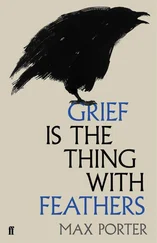Like most first efforts, it was a failure. But he worked on it for months. The Urfeist chose to escape the city that summer. “It will be a good year for cholera,” he said. He packed up his kilt and his hat and his shirt and admonished Gob to read a book a day while he was gone. He had made selections and stacked them in the library.
“Are you going to Homer?” Gob asked him, just before he walked out the door.
“I have never heard of such a place,” the Urfeist said. He bent down and kissed Gob lightly on his cheek, saying, “Mind Mrs. Lohmann.” Madame Restell had declared that she would be Gob’s companion. “We shall have a summer of delight!” she proclaimed.
While his teacher was gone, Gob neglected to read his book a day, neglected plays and Barnum’s museum, neglected eating sometimes, enthralled by the workings of the half-dozen stockbroker’s tickers he disassembled. He easily mastered the workings of the telegraphs — Professors Henry and Morse were his heroes, in those months. By July he had assembled his own ticker, made of parts looted from the ordinary tickers, and mystical parts he fabricated himself — bits of wire blessed in rituals, tiny golden gears, magnets split with a chisel under the full moon, batteries made from chemicals and herbs. He puzzled for another month over what sort of wire might take a message to the dead. And once he had a proper metal, where would he connect it? Would he have to sneak back to Homer and run the wire down into Tomo’s grave? Could he connect it to the many miles of wire that crossed and recrossed Manhattan and hope that the spirits of the dead might hear and speak through that medium? In the end, he decided not to use a wire at all. He devised a means of telegraphing by induction.
Just looking at his spiritual telegraph, Gob should have known that it wouldn’t work. It wasn’t his machine. Though he did not know what his machine looked like, he knew for a fact that he would recognize it, when he saw it, and he recognized nothing in the dog-sized apparatus on his floor. It stood on four gutta-percha feet, and its silver and glass parts glinted under the light of the gas chandelier. Gob threw all the necessary switches. He had developed a special sense for electricity and other vital forces — he knew the thing was humming with energy. He sat up with it all night long, waiting for it to spit out a message from Tomo— I am alive, I am coming back to you.
But it was silent.
When the Urfeist returned in the autumn, Gob was prepared for a beating because he had neglected his studies and squandered his time on a useless machine. So he was surprised when the Urfeist praised his failed effort. “Now we may begin,” the Urfeist said, meaning that they could begin to build in earnest. They collaborated on machines. The ectoplasmic arc lamp, the Sweden-borgian turbine — these were failures, too.
But these failures cheered the Urfeist. “Of course it will be difficult,” he told Gob, with something almost like kindness in his voice. “Perhaps,” he said, “you are becoming competent in your science but neglecting your art.” He locked the door of Gob’s workshop, hid the key, and directed Gob to the library, to the many shelves devoted to the arcane arts. Gob studied dutifully, wishing he could return to his workshop and be a mechanic. But after a few weeks he found a book that intrigued him endlessly, a little primer of necromancy, bound in black leather and written in German. It was full of simple spells that purported to let the living communicate with the dead. Write a message on a piece of slate and bury it in a graveyard; burn your message with peat and the fat of a pregnant hare; the dead will hear you. Gob performed these spells, sent Tomo such messages as I will bring you back , and they comforted him, though he did not entirely believe them efficacious.
Gob began to accompany the Urfeist when he called at the houses of sick people. The Urfeist meant to make Gob a physician, to balance Gob’s study in necromancy with the study of life. But it seemed to Gob that medicine was an art as thoroughly dedicated to death as was necromancy. What was in a medical book besides loving, intimate descriptions of injury, disease, and, ultimately, death? There was a motto in the little McGuffey’s Necromancer that had become dear to him: My mistress wears a thousand faces. It was the refrain of the sorcerer, but it seemed to Gob also appropriate to the medical profession. “Yes,” said the Urfeist. “It is true. Those root and herb sharks. Those cancer-quacks. Oh, even the distinguished ones, too. Dr. Mott, Dr. Gross, all my esteemed colleagues, they are ministers of hope and despair — and they do not hate death sufficiently.”
Every year, in the weeks leading up to Christmas, the Urfeist made a grand orphanage tour. There were a great many to visit. He went, not to make withdrawals of children, but to deposit gifts. He put a sprig of holly in his hat, the servants loaded down a carriage with presents, and the Urfeist proceeded to the Catholic Orphan Asylum, just up the street from them on Fifth Avenue, or the Juvenile Asylum, or Leake and Watt’s Orphan House. Gob went with him to the Sheltering Arms, a house up in Manhattanville that accepted the castoffs of other orphanages. The children — some terminally ill, others half-orphaned not by death but by liquor — gathered under a candle-laden Christmas tree and received the largesse of the Urfeist. Gob wondered if the rocking horses wouldn’t come alive at night and stomp on some child’s tender cranium, if the porcelain faces of the dolls would not at midnight become the glaring white visages of ghouls, if the toy guns would not shoot real bullets and make murderers of innocents. But the gifts were wholesome. The puzzles were just puzzles, the calico cats and gingham dogs lacked teeth and claws. The toys were remarkable only because they were so fine. There were wooden soldiers who marched and presented arms, glass butterflies that, when wound, flapped their wings and waved their antennae, a tiny bear who, when squeezed, growled.
“And what is your name, my dear?” asked the Urfeist. A child had climbed into his lap where he sat by the tree.
“Maude,” said the girl.
“What have we for sweet little Maude?” the Urfeist asked of Gob, and Gob rummaged in the bag until he found a doll for her.
“Thank you,” she said dutifully, when she had got it. She leaned forward and gave the Urfeist a kiss on his dry cheek, then clambered off his lap and ran away to a corner where she clutched her new doll and rocked slowly back and forth on her knees.
After visiting the Sheltering Arms, they went home. The Urfeist was a great devotee of the holiday. He insisted on having multiple trees throughout the house, each one lit up with candles and strung with gold beads and crystal. The house was swathed so heavily with evergreen cuttings that a person could not pass from one floor to another without getting touched with sap. The Urfeist scattered walnuts in the corners, set puddings and punches on every table, and insisted, in the few days immediately following Christmas, on lengthy sessions of caroling. Candles in hand, he and Gob would proceed through the house side by side, singing “Good King Wenceslaus” or “Adeste Fidelis.” Up and down all the stairs, through the parlors and the kitchen, through the dining room and the ballroom, through every room but the green room they walked and sang. On Christmas Eve of 1865, they had a session of caroling, and when they had passed into the upper reaches of the house, and were proceeding through Gob’s bedroom, the Urfeist stopped.
“Time for your Christmas present,” the Urfeist said to Gob. Gob thought that meant he ought to proceed to the stone corner and get down on his belly. That was what he was doing when the Urfeist said, “Not that. Not now. Come here.” He produced the key to Gob’s workshop and opened up the big iron door. Inside the spiritual telegraph sat where Gob had left it in the middle of the room. “This is your present,” the Urfeist said warmly. “A return to machines. Do you know what time it is?”
Читать дальше












